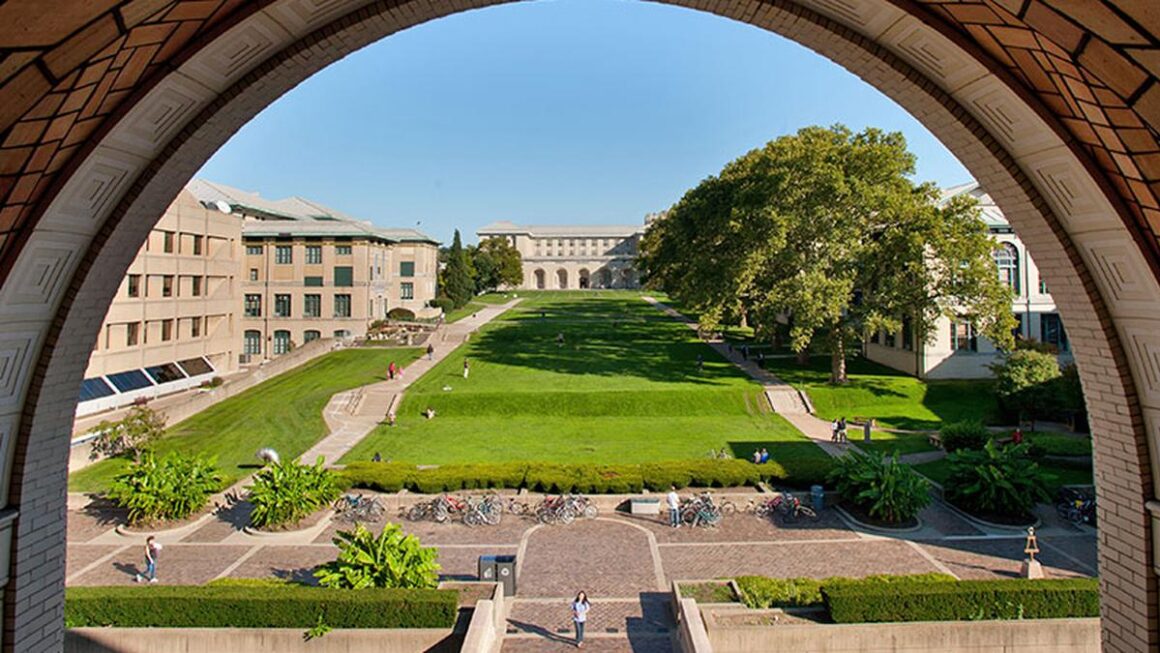In today’s globalized world, having a broad and inclusive outlook is essential for personal and professional success. As industries expand globally and our interconnectedness increases, it becomes imperative to gain an understanding of different cultures, business practices, and worldviews. Study abroad programs offer students an opportunity to experience a different culture, education system, and society, fostering a deeper global perspective. These programs encourage students to think beyond their local experiences and develop a worldview that enhances their academic and career prospects.
This article explores how studying abroad can enhance your global perspective, the personal and professional benefits it offers, and practical advice for making the most of the opportunity.
Key Takeaways
- Cultural immersion helps you appreciate diversity and enhances your empathy towards people from different backgrounds.
- Learning a new language and adapting to different communication styles improves your ability to connect with people globally.
- Building international networks provides valuable career opportunities and enriches your professional experience.
- Exposure to global issues and local challenges fosters a better understanding of worldwide problems and solutions.
- Personal growth gained through living abroad builds self-confidence, resilience, and independence, all of which are crucial for your future success.
How Study Abroad Programs Enhance Your Global Perspective

- Cultural Immersion: Living the Experience
- Exposure to Local Cultures: Study abroad programs immerse students in a completely new culture, offering a firsthand experience of traditions, customs, and societal values. Living in a foreign country allows you to observe and engage with everyday life in ways that visiting as a tourist cannot replicate.
- Understanding Diverse Perspectives: By actively participating in the local culture, you gain insights into how others perceive the world, the challenges they face, and the values they prioritize. This deepens your understanding of global diversity, enhancing your empathy and cultural sensitivity.
- Enhanced Communication and Language Skills
- Learning New Languages: Studying abroad presents the opportunity to learn or improve foreign language skills. Speaking a second language opens up doors to better communication, fostering deeper connections with locals, and enabling you to navigate international environments with ease.
- Adapting to Different Communication Styles: Exposure to various cultural communication practices helps students become adept at navigating diverse interactions, whether verbal or non-verbal. These skills are invaluable for global teamwork, conflict resolution, and negotiations in the workplace.
- Building a Global Network
- International Relationships: One of the primary benefits of studying abroad is the opportunity to build a network of international contacts. By meeting students, professors, and professionals from around the world, you create relationships that can offer future career opportunities and broaden your professional horizons.
- Cross-Cultural Collaborations: The friendships and connections you make abroad often lead to collaborations across cultures, industries, and countries, expanding your access to global resources, ideas, and opportunities.
- Adapting to a Globalized Workforce
- Understanding Global Business Practices: As businesses become more interconnected, understanding how different markets function is crucial. Studying abroad allows you to experience firsthand how different cultures approach business, communication, decision-making, and leadership. This exposure strengthens your ability to operate in a global market.
- Employability Advantage: Many employers value candidates who have international experience, as it demonstrates adaptability, independence, and cultural awareness. The ability to interact with people from diverse backgrounds can set you apart from others in a competitive job market.
- Experiencing Global Issues Firsthand
- Engagement with Local Challenges: Studying abroad provides the opportunity to engage with global challenges directly. Whether it’s poverty, climate change, or political issues, being immersed in the local context offers a more nuanced understanding of these issues and their global implications.
- Perspective on Social and Economic Development: Each country faces its own set of challenges and opportunities, and studying abroad provides the chance to analyze these issues from a local perspective. This experience helps you develop solutions that are culturally sensitive and globally applicable.
Personal Benefits of Studying Abroad

Beyond enhancing your global perspective, studying abroad offers significant personal benefits that enrich your overall life experience:
- Increased Self-Confidence and Independence
- Living abroad requires students to step outside their comfort zones and navigate unfamiliar environments. This fosters resilience, adaptability, and problem-solving skills, which ultimately boost confidence and independence.
- Cultural Sensitivity and Awareness
- Immersing yourself in a new culture helps you become more aware of your biases and assumptions. It encourages open-mindedness, tolerance, and empathy, allowing you to better appreciate diversity and develop respectful cross-cultural relationships.
- Personal Growth and Development
- Exposure to new experiences and challenges helps you grow as an individual. The process of adapting to a new environment, making new friends, and learning to navigate different systems fosters maturity, patience, and personal development.
- Academic Enrichment
- Studying abroad provides access to unique educational opportunities. You might have the chance to take courses not available at your home institution, learn from esteemed professors, and experience different teaching methodologies that broaden your academic knowledge.
Practical Tips to Make the Most of Your Study Abroad Experience
To truly enhance your global perspective during your study abroad program, consider these tips:
- Engage Actively with Locals: Don’t limit yourself to only socializing with fellow international students. Actively seek out opportunities to connect with locals, whether it’s through social events, cultural exchanges, or daily interactions. These experiences will deepen your understanding of the culture and enhance your communication skills.
- Learn the Language: Even if your courses are taught in English, learning the local language will enhance your ability to connect with locals, explore your surroundings, and navigate day-to-day tasks more efficiently. A basic understanding of the language can go a long way in fostering relationships and demonstrating cultural respect.
- Be Open-Minded and Adaptable: Studying abroad is a transformative experience, and it requires a flexible and open mindset. Be prepared for challenges and unexpected situations, and embrace them as learning opportunities. The more adaptable you are, the more enriching your experience will be.
- Immerse Yourself in Cultural Activities: Take advantage of the cultural events, excursions, and local festivals that take place during your time abroad. Visiting museums, attending concerts, and participating in traditional events will enrich your understanding of the culture.
- Document Your Journey: Keep a journal or blog to track your experiences and insights. Reflecting on your journey will help you process what you’ve learned and solidify the skills and knowledge gained through your time abroad.
Also Read: What Are The Best Study Abroad Scholarships For International Students?
Conclusion
Studying abroad is more than just an academic experience; it is an opportunity for personal growth, cultural exploration, and professional development. By immersing yourself in a foreign country, you gain valuable insights into different cultures, educational systems, and societal norms. This broadens your worldview and provides you with the tools needed to navigate an increasingly globalized world.
Whether you’re seeking to improve your communication skills, build an international network, or understand global issues on a deeper level, studying abroad is one of the most effective ways to enhance your global perspective. By stepping out of your comfort zone, embracing new experiences, and learning from people around the world, you can transform both your personal and professional life.
FAQs
What is the best time to apply for a study abroad program?
Start your application process at least six months to a year in advance to ensure enough time to research programs, complete necessary paperwork, and meet deadlines.
Can I study abroad during any semester?
Yes, many study abroad programs offer opportunities during the fall, spring, or summer semesters. Some programs also offer a full academic year abroad.
Do I need to be fluent in another language to study abroad?
Not necessarily. Many study abroad programs offer courses in English, and most universities provide language courses to help you adapt. However, learning the basics of the local language can enhance your experience.
Are there scholarships available for studying abroad?
Yes, many universities and external organizations offer scholarships specifically for study abroad programs. Check with your institution’s study abroad office for available opportunities.
Can I work while studying abroad?
Many countries allow international students to work part-time while studying. However, be sure to check visa regulations and work permissions before making plans.
How safe is it to study abroad?
While safety concerns vary by country, universities and study abroad programs provide information and resources to help ensure your safety while living abroad. Always follow local guidelines and stay informed about the safety of your host country.
How will studying abroad benefit my career?
Studying abroad provides you with cross-cultural communication skills, global awareness, and an international network of contacts. These are highly sought after by employers who value candidates with global experience and the ability to work in diverse environments.




